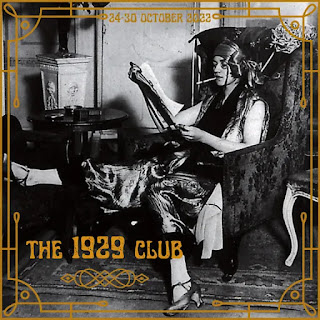"...a very discreet and serious dialogue upon virtue..." [Chapter 9]
Well, nah.
Charles Primrose, the Vicar of Wakefield, is a good person who suffers great losses which are then restored to him in the end. You may remember this as the story of Job. I just reread the Book of Job to go with this, and the events of Job's story in the Bible take about as long as this paragraph. The rest of that book is indeed a discreet and serious dialogue about virtue (and God and sin and some other Very Important things.) But Oliver Goldsmith subs most of that out for some humour and romance...
We first see Dr. Primrose in a disputation with his fellow vicar, Mr. Wilmot, on the eve of George, his eldest son's, marriage to Wilmot's daughter. The dispute becomes so heated that the marriage is broken off. Well, that, and that, at the same moment, Primrose discovers his scoundrelly agent has absconded with his fortune.
It will be necessary for the Primroses to retrench.
George heads out into the world to make a living. The rest of the family move to a smaller place where they will be able to grow their own food to help out. In the course of moving, Sophia, the younger daughter, nearly drowns crossing a river, but is rescued by Mr. Burchell, and there's nothing like a rescue to make a girl take notice. Burchell will now be involved in their lives. For good? For ill?
They rent their new living quarters from Squire Thornhill. Thornhill has a bad reputation, but seems nice; Mrs. Primrose is determined that Olivia, the older daughter, should catch his eye. This requires new clothes, which requires money, which they don't have. Moses, the second son, is sent to the fair to sell one of their two horses, but is deceived by a conman. The other horse must be sold as well and Primrose himself goes to the fair where he is deceived by the same conman.
They run into George; he has not made his way in the world. (He almost became an actor. The horror! I believe Goldsmith--also a playwright--is being a little ironic here...) Thornhill loans the money to buy George a commission, but as soon as George is out of the way, Thornhill has Primrose thrown into debtor's prison, and seduces Olivia, who's willing because she believes it an elopement.
Primrose in debtor's prison is pretty much the same man he'd been all the way through: patient, helpful, trying to improve lives of the people around him, his parishioners and now his fellow inmates. And maybe also a little ridiculously, dangerously innocent? But that goes with goodness.
But. I did mention this often gets compared to the book of Job, right? By reforming the right person in the prison (that same conman) and with a little (well, a lot) of outside help, Primrose's life and fortune and restored. A sort of well-intentioned goodness makes everything right in the end. Which is what you wanted to hear, isn't it?
Anyway, while it may well be a 'dialogue upon virtue', it's a funny and engaging one, not discreet and serious at all.
It went on to become a pretty famous book. It shows up in Middlemarch, in Frankenstein. It's one of the few books young David Copperfield has left from his late father's library. It's the only thing other than agricultural reports that Robert Martin, Harriet's intended in Emma, has read. And once Jo (Little Women) has put Great-Aunt March to sleep by reading devotional literature, "I whipped The Vicar of Wakefield out of my pocket and read away, with one eye on him, and one on Aunt. I'd just got to where they all tumbled into the water, and forgot, and laughed out loud." But even Great-Aunt March comes to like The Vicar of Wakefield.
So...maybe it's a classic?






